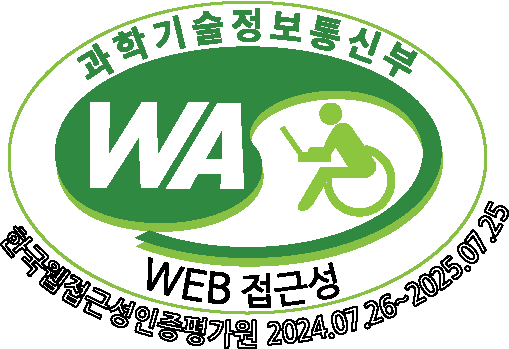관련자료
[각료회의] 한덕수 본부장 연설/
- 부서명
- 외교부 > 관리과
- 작성일
- 2005-05-21
- 조회수
- 2707
MINISTERIAL CONFERENCE Third Session Seattle, 30 November - 3 December 1999 KOREA Statement Circulated by H.E. Mr. Han Duck-soo, Minister for Trade Over the past 50 years, the liberalization of the multilateral trading system has produced many great accomplishments. First and foremost, sustained free trade has helped lift many less developed economies from poverty and transformed them into vibrant, newly industrialized economies. Indeed, Korea is a clear testament to that success. Of course, the continued process of liberalizing trade has invited many new challenges and disconcerting reactions. Despite the difficulties, there is no doubt that the active promotion of?and participation in?the continued liberalization process offers the best possible path to greater prosperity for the future. Based on this belief, all Members have gathered here with a common objective. Our goal is to further strengthen this rule-based, multilateral trading system, in order to respond to new global challenges. During the past decade, especially since the conclusion of the Uruguay Round, globalization has progressed at an accelerated pace, raising new issues, and calling for further liberalization. Korea, along with many other Members, believes that changing realities call for a comprehensive approach in this New Round of negotiations. The traditional, narrow focus on market access is no longer adequate. In this ever increasingly integrated world, we face a greater need to harmonize the rules on competition. Without market competition rules based on common agreement, any gains from new market access can be easily rendered meaningless. Another important area for rule making is investment. As trade and investment are inseparable in today?s world market, we need basic rules on international investment. When approaching rule making for these areas, we should be determined, yet practical. We may begin by agreeing on basic rules and then continue from there. A proactive approach to rule making is also needed in the government procurement area. Other issues such as electronic commerce call for our attention as well. Let me now turn to Korea?s position on market liberalization. First, regarding manufactured goods, we need to aim for a significant reduction of remaining tariff barriers. The reasons are simple. There are unambiguous and undisputed benefits from freer flows of trade in manufactured goods because comparative advantage works so clearly in this sector. Furthermore, liberalization has been progressing in this area for the past 50 years. We should build on that momentum. Even though the share of manufactured goods in world trade has been on the gradual decline, it still accounts for more than 60% of total trade. Further lowering barriers in this sector will have a direct and marked impact on global trade growth. During the Uruguay Round, fishery and forestry products were included in the Market Access Group and were treated no differently from manufactured goods. Korea holds a particular concern for fishery and forestry products, which have special socio-economic characteristics different from industrial goods. Fishery and forestry products, by their nature, are susceptible to quick depletion unless we make coordinated efforts through proper resource management to conserve them. In furtherance of liberalizing trade, we should give due consideration to the distinct characteristics of fishery and forestry products. As for agriculture and services, we already have mandates for negotiations from the Uruguay Round. It is essential that we abide by those already-agreed-upon principles. For agriculture, in particular, we have agreed to pursue progressive liberalization. Korea?along with other countries?believes that this is the best approach for securing not only greater participation of Members, but also significant and sustainable liberalization in the long run. On the other hand, pursuit of dramatic liberalization within a short-time frame would only generate serious political backlash and instability domestically. Such consequences may jeopardize the entire liberalization process. Furthermore, Korea strongly believes that the agricultural sector cannot be treated in the same way as the manufacturing sector, where liberalization has progressed for the past fifty years. As we all know, the issue of liberalizing agriculture first came into the WTO framework only during the Uruguay Round. Furthermore, it is imperative that we recognize and factor in non-trade concerns for agriculture, including its multifunctional role with regard to the environment, rural development, food security, and other areas. An approach based on concepts such as targets, transparency, and non-market distortion would be both overly simplistic and too costly when addressing this very complex and difficult issue. As for services, we have a simple and straightforward position: We advocate comprehensive negotiations with a view to achieving balanced and broad liberalization. Next, I would like to emphasize Korea?s efforts for improving the Anti-dumping Agreement. Clearly, Korea is not seeking the complete elimination of the anti-dumping rules. However, the current Anti-dumping Agreement retains a number of shortcomings that have generated problems over the past years. Ambiguities remain and can create distortions, sometimes opening the door for abuse for protectionist purposes. Therefore, we believe that the provisions of the WTO Anti-dumping Agreement should be reviewed and amended. Korea would like to emphasize that a significant number of the Members regard the improvement of the Anti-dumping Agreement to be a critical agenda item for the New Round. As a last point, Korea believes that the entire negotiations for these various issues should be concluded as a single undertaking. A single undertaking would allow for a better balance of interests among Members. In addition, we need to ensure, during the negotiation process, that the interests of least developed countries are duly considered so that all Members realize the benefits of liberalization. In closing, what we are trying to achieve here is by no means an easy task. However, too much is at stake. A successful launch of the New Round is essential for generating future growth and guaranteeing greater prosperity for all. Considering the success we have achieved over the past 50 years, I am optimistic that we can succeed once again. Thank you.
- 메뉴담당부서
- 지역경제기구과
- 전화
- 02-2100-7658
